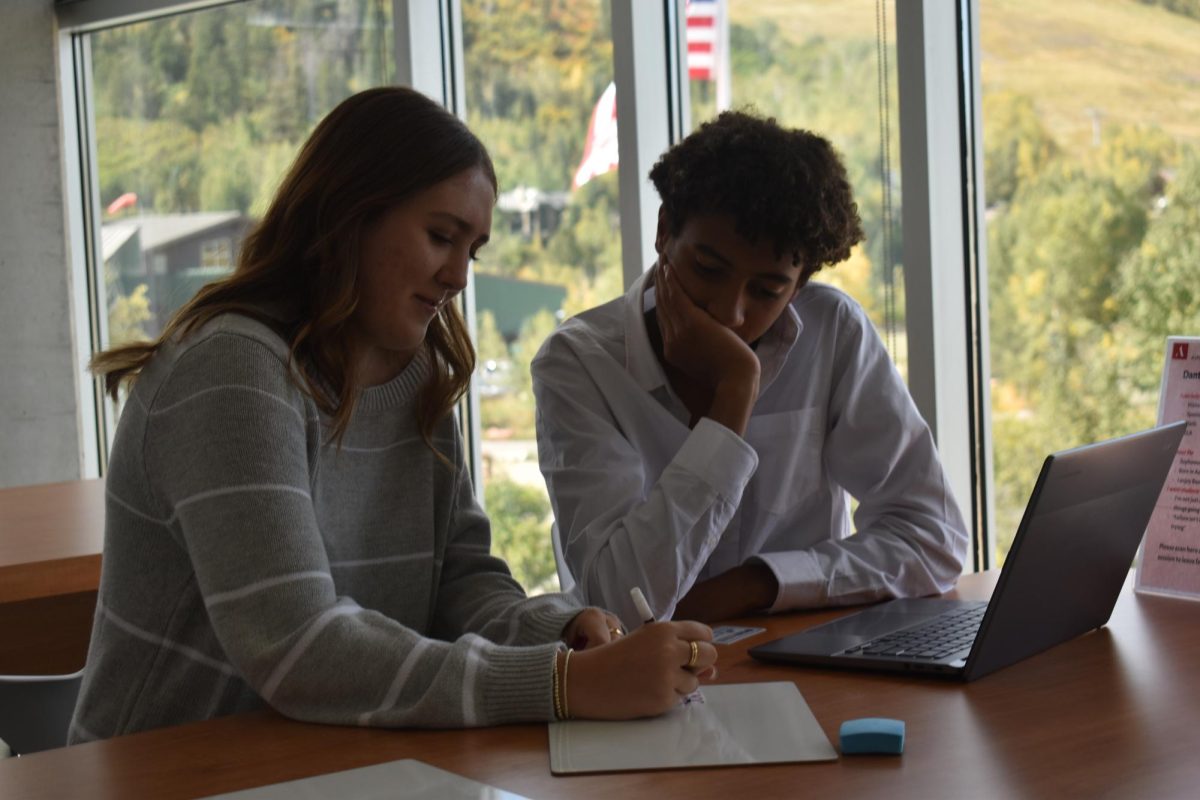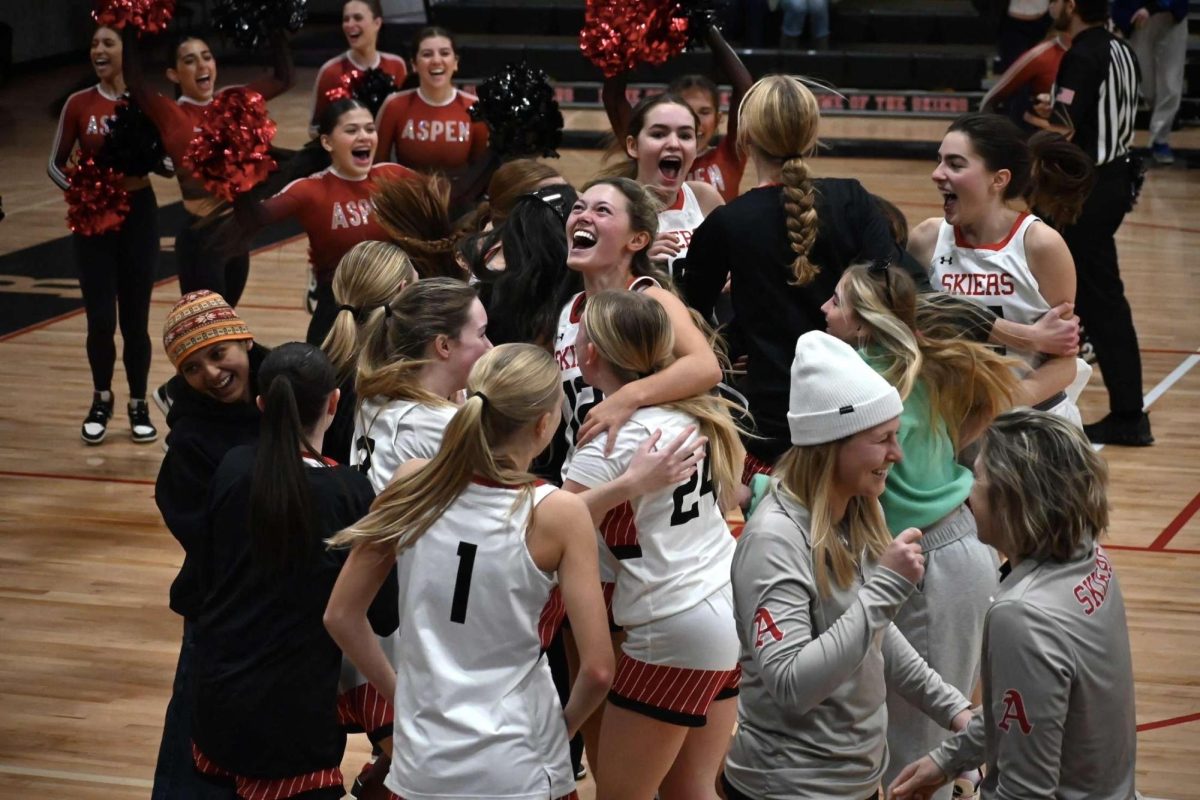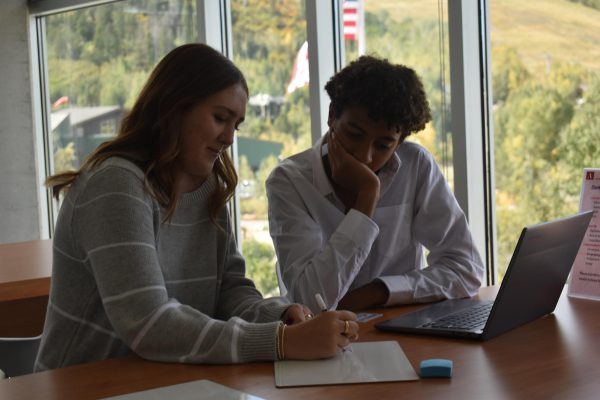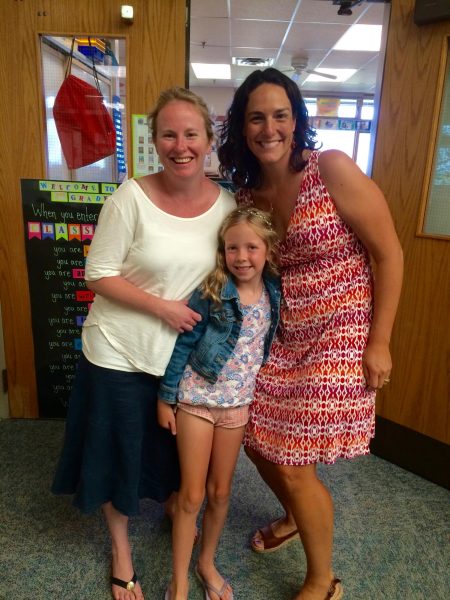Wasteful ways at AHS
The Pitkin County Solid Waste Center’s mounds of trash.
It happens every day. Students walk up to the composting, trash, and recycling bins with a bundle of assorted materials. Their eyes glint with confusion as they contemplate which item goes where. In a blur of frustration and desperation, the student throws everything into the trash bin, not realizing the consequences of their actions.
Pitkin County has Single-stream recycling, meaning that all paper products, plastics, and metals are co-mingled. None of the recycling is processed and sorted in Pitkin County; instead, it is hauled to a facility in Denver. However, the facility often overflows, resulting in the recycling being carted to California, where it’s then transported to China.
This is not unique to Pitkin County; in fact, most of the recycling in the U.S is sent to China. In 2018, the U.S shipped 270,000 tons of mixed paper and plastics to China, and of that, 450 pounds per ton were contaminated. Last year China declared that the contamination rate had to be 0.5 percent or below, which is less than 10 pounds of contamination per ton. As a result, China threw away all of the recycling produced that year. A study in 2015 by Pitkin County reported that the county was at an 8 percent contamination rate. Currently, the school’s contamination rate is at 25 percent.
Cathy Hall, the Solid Waste Manager at the Pitkin County landfill, helps facilitate the process of recycling and composting.
“Having everything labeled clearly makes everything so much easier, “ Hall said. “53 percent of materials still being buried at the Pitkin County landfill could be diverted through our programs. The landfill only has 5 to 6 years left; everyone needs to start doing their part to prolong that expiration date.”
A significant cause of contamination is ununified bins in the school district. Each classroom has different colored and sized containers without proper labeling, which creates confusion for the staff and the students.
Travis Moore, a science teacher and the leader of the Earth Group at AHS has been working to solve the problem of the unified bins in the school district for six years.
“People don’t know where to put their recycling and composting because there are too many bins,” Moore said. “A lot of people don’t realize that the county is single-stream recycling and all of the recycling goes in one. Every year we [the Earth Group] try to fix this problem, but it’s so low on the school’s priority list that we’re not getting it done.”
Recently AHS trained the custodial staff to be better focused on trash and recycling and how to compost correctly. However, the school hired someone who only spoke English, and the majority of the custodial staff at AHS is not fluent in the language.
Gary Vavra, the director of Facilities and Transportation at AHS, is in charge of Waste Management and has been an advocate for the environment since 1971.
“It’s a matter of educating everyone. I think a lot of times people tend to overlook the importance of education; it is the first step and most important step to fixing the problem,“ Vavra said. “We are going to revisit the custodial issue next year and hopefully get them the proper training they need.”
Another major issue that subverts the process of recycling is the Cafeteria grease traps. The landfill cannot pour the grease into the ground; therefore it is dumped on cardboard, which then gets buried. The grease traps are required by the state to be cleaned four times a year, so the recycled cardboard at the school is often used for that process.
“We take the school’s cardboard where the grease goes. It makes absolutely no sense to me. However, that’s our current regulation. Most of the cardboard at the school isn’t recycled,” Vavra said. “Sometimes they [the landfill] can’t pour the grease because we don’t have enough cardboard.”
With today’s looming threat of environmental destruction, activists at AHS seek to raise awareness about the environment and how to preserve it. Many believe that education is essential to salvaging the future of humanity.
“I’m a product of Earth Day. We were going to change the world and make it a better place, but my generation failed. Now it’s up to you guys, and it shouldn’t be like that. We should have made more progress than we’ve done,” Vavra said. “Somewhere along the way when we were caught up in the turbulence of life, we lost focus on what was really important and what mattered to us more than anything in the World. We need to educate everybody, and we all have to be re-committed to doing the right thing so that our children’s children have a world.”



























